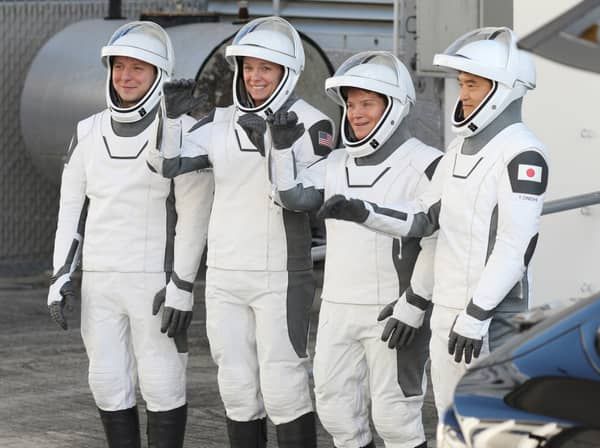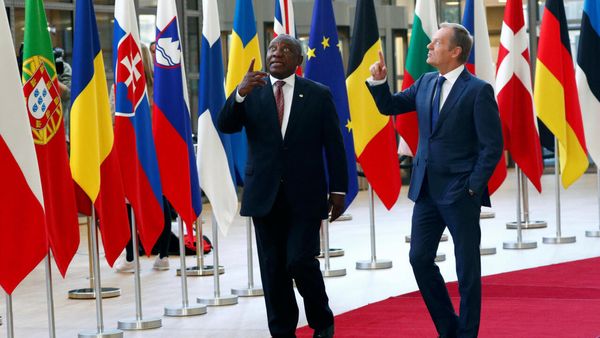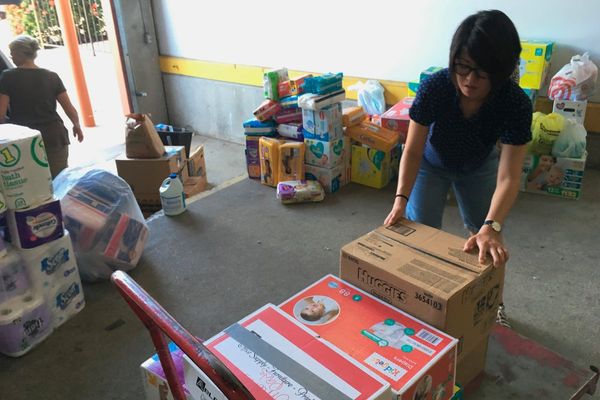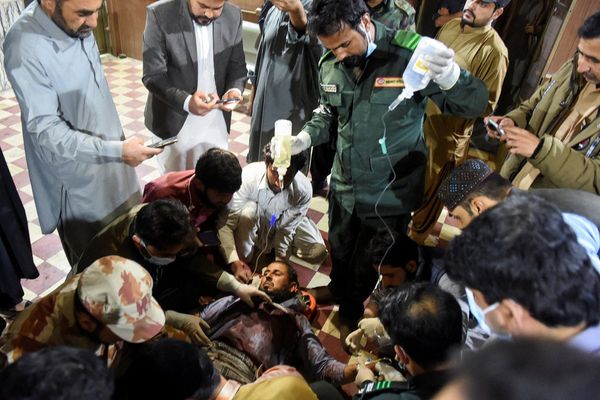For the children growing up in eastern Ukraine, this is not the first war they have endured in their short lives.
In 2014, fighting between Russian proxy forces and the Ukrainian military in the Luhansk region drove Lyubov Pavlenko and her two sons from their home.
But during a short trip to pick up their documents close to their old home, disaster struck.
Ms Pavlenko and her then five-year-old son Bogdan came under shelling.
She threw herself on top of her son and rubble came down around them.
The incident left her son with a skull injury and a mental health disorder.
"It took about two hours to get us out …and the next day my child turned into a vegetable," she said.
"He had to learn how to do everything again. The only thing he could do was walk."
More than 100 children have been killed and many more injured during eight years of conflict in the east of the country.
But since Russia launched a full-scale invasion of Ukraine, those numbers have quickly grown as children around the country became exposed to war.
According to the Office of High Commissioner for Human Rights, at least 19 children have been killed since February 24.
Among them was a six-year-old girl who was caught in the shelling of the port city of Mariupol.
Russia claimed it has not been targeting civilian areas, but kindergartens, educational institutions, hospitals and residential areas have all come under fire.
Children who survived war face another conflict
When the Russian invasion began, Ms Pavlenko and Bogdan took shelter in a school basement along with 70 others, including 40 kids.
Ms Pavlenko is terrified that her son, now 13, will face setbacks in his recovery.
She said Bogdan has spent years undergoing rehabilitation, relearning basic skills like speaking and using the toilet.
"I'm afraid that my child will return to the state that he was in," she said.
"When the shells started flying and the explosions started, of course my son got scared.
Ludmila Romanenko, a psychologist who works with charitable foundation Voices of Children, said children in the region are being re-traumatised.
"It's harder to bear the second time," she said.
Before the outbreak of full-scale war, families could move some 50 kilometres away from the frontline and live safely, Ms Romanenko said.
Now, she said, practically nowhere in Ukraine was safe.
"I think that also makes it worse," she said.
The escalating conflict in Ukraine now puts the country's 7.5 million children under threat, according to UNICEF.
In the past week, children have been forced to spend nights in basements while babies have been born in bomb shelters.
Others have endured difficult and lengthy journeys across the country as families fled for safer places like Poland, Romania and Moldova.
Save the Children Eastern Europe Director Irina Saghoyan said this experience will remain with children for years to come.
Polina is haunted by nightmares
Oksana Didenko lives in the frontline city of Hirske with her two children.
She said her 13-year-old daughter, Polina, was once a cheerful and positive girl.
"She was so open and … when all this happened, she became a different child," she said.
In early 2015, Polina was out for a walk with her mum and brother when their town came under shelling, which struck near a gas pipeline.
The family wasn't injured in the attack but Polina, who was five at the time, was traumatised by the incident.
Ms Didenko said since then, Polina had been plagued by nightmares and has been unable to handle loud noises.
"[She hears] loud sounds and she switches off. She starts to feel unwell," said Ms Didenko.
Polina has always been a creative child and has used art to cope with the stress of war, but her mother said that the conflict has also affected her craft.
"Now she creates nightmarish figures out of plasticine," Ms Didenko said.
Polina said that nightmares often prevented her from getting enough sleep.
"I dream that we are being led somewhere and then they shoot us one by one," Polina said.
"It's unpleasant but I always wake up."
'We really want to live'
The children who manage to escape Ukraine are facing their own challenges, according to Irina Saghoyan from Save The Children.
"Children on the move is a big concern because all families travel very light, they have little personal belongings," she said.
"They need literally everything on the road from food to water, from warm clothes to diapers."
About 1 million people have fled across Ukraine's borders since Russian forces invaded a week ago, according to the UN.
The situation looks set to become Europe's largest refugee crisis this century, according to UNHCR spokeswoman Shabia Mantoo.
Still, many other families have chosen to stay put amid fears that travel might be just as dangerous as hunkering down.
For Lyubov Pavlenko and her son, Bogdan, the choice to stay or go is not an easy one.
She fears they won't make it to western city of Lviv.
"We want to live. We really want to live," she said.
"We want to raise our children and see smiles on their faces, not tears."







